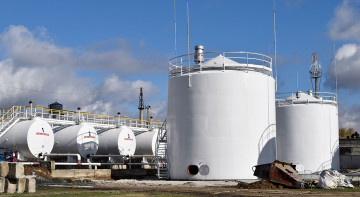Obtaining a license for international cargo transportation
In order to carry out international freight transport, you need the appropriate licence or permit depending on the country in which you plan to operate. In most cases, this could be an international transport licence or an international road permit.
In the European Union, there is an international freight transport licence, which requires registration with the relevant national authorities and obtaining a permit. In Ukraine, an appropriate licence or permit is required for international freight transport. This may be an international licence for road transport, which is issued by the Ministry of Infrastructure of Ukraine.
The procedure for obtaining a licence for international freight transport, usually requires the submission of a number of documents, including vehicle registration, insurance, and documents confirming the compliance of drivers and goods transported.
In addition, international treaties and agreements, such as international road traffic agreements and customs regulations, which may also be mandatory for international freight transport, must be taken into account.
Legal stages of obtaining a license for international cargo transportation
This process involves not only collecting documents, but also following other clearly defined procedures:
- International freight licence Ddocuments: Collect all the necessary documents to apply for a licence. This may include vehicle registration documents, insurance, certificates of compliance and other required documents.
- Applying: Apply for a licence with the Ministry of Infrastructure of Ukraine or the relevant authority. Make sure that all submitted documents are correctly filled in and attached. Application review: Your application will be reviewed by the competent authority. Additional documents or clarifications may be required during this process.
- Payment of fees and charges: You may need to pay fees and charges for the processing of the application and issuance of the licence.
- Receive a decision on the international freight transport licence: After a positive review of your application, you will receive a decision on the issuance of an international freight transport licence. Compliance: Once you receive your licence, your responsibilities include complying with all the requirements specified in the licence, such as complying with traffic, customs and other regulations.
- Regular renewal: A licence may have an expiry date after which it must be renewed. The obligation to regularly renew a licence depends on Ukrainian legislation.
Each of these steps has its own details and may vary depending on the specific circumstances and requirements established by the competent authority. It is important to carefully familiarize yourself with the requirements and adhere to them at all stages of obtaining a license.
Under what conditions can the service of obtaining a license for international cargo transportation be provided?
In order to successfully and quickly obtain a license, you must meet a number of requirements:
- Having a licence or permit: Carriage of goods across borders requires a licence or permit from the competent authorities.
- Compliance with security requirements: The transport of goods must comply with both national and international security standards.
- Compliance with customs and immigration regulations: Goods must be correctly declared and cleared in terms of customs and immigration regulations of the countries of origin, transit and destination.
- Availability of necessary equipment and resources: The transport of goods requires the availability of suitable vehicles, drivers and other resources necessary for the fulfilment of the service.
- Agreeing the route and conditions with the client: The client and the carrier must agree on the route, transport conditions and other details related to the service.
If you meet all the requirements, you will be able to successfully obtain a license for international transportation.
Under what conditions can the service of obtaining a license for international cargo transportation not be provided?
However, there are situations when the provision may be denied:
- Lack of required documents and licences: If the carrier does not possess the necessary licences, permits or other documents required for international freight transport, the service may be refused.
- Failure to comply with safety requirements and technical standards: If the vehicle or driver does not comply with safety requirements, technical standards or regulations, this may be a reason to refuse the service.
- Violation of legislation: If international freight transport violates the legislation of the country of origin, transit countries or the country of destination, this may lead to denial of the service and possible legal consequences.
- Lack of insurance or liability guarantees: If the carrier does not insure the goods or is not prepared to provide guarantees in the event of loss or damage to the goods, this may be a reason for refusal of the service.
- Economic or financial problems: If the carrier has economic difficulties or does not have sufficient funds to ensure the carriage of the goods, he may be forced to refuse to provide the service.
- Other restrictions or prohibitions: In some cases, there are specific restrictions or prohibitions on international freight transport related to the type of cargo, region, political situation and other factors.
Taking into account the above restrictions will help prevent denials of service.
How to independently obtain a license for international cargo transportation?
In order to cope with the process independently, it is important to have a clear understanding of the legislative requirements and procedures:
- Research legislation and requirements: Familiarise yourself with the legislation and regulations governing international road freight transport in your country, as well as in origin, transit and destination countries. This may include licensing requirements, insurance, customs procedures and technical standards.
- Research the process of obtaining a licence or permit: Research in detail the process of obtaining a licence or permit for international freight transport in your country. This includes required documents, application procedures, deadlines and requirements.
- Get the information you need about freight transport: Find out about the types of goods you intend to transport and the special requirements or restrictions associated with them. This may include customs clearance rules, packing and labelling requirements, etc.
- Make an action plan: Based on the information you have received, develop an action plan to obtain all necessary licences, permits and prepare for international shipping. Make sure your plan covers all steps and requirements.
- Consult with experts on international freight licence: If necessary, seek advice from specialists or attorneys experienced in international freight transport. They will be able to help you understand the complex issues and ensure that all requirements are met correctly.
- Keep up-to-date: Keep in mind that legislation and regulations can change over time, so it's important to keep your knowledge up-to-date and keep up-to-date with changes in the industry.
Independent understanding of the process is possible subject to a detailed study of the legislation, regulations and specific requirements. Also, do not forget to seek advice from specialists to effectively resolve any complex situations that you may encounter during the license application.
What should be considered when applying for a license for international freight transportation?

The need for a license for different types of cargo: For some categories of cargo, there may be additional licensing requirements or special permits.

Features of obtaining licenses for the transportation of dangerous goods: Transportation of dangerous goods requires a separate license, which is regulated by additional international norms and safety standards.

Checking compliance with international standards: Often, carriers must undergo certification to comply with international transport quality and safety standards, which is an additional step on the way to obtaining a license.
Frequently asked questions about a license for international cargo transportation
Question
How do I add a truck to my International Cargo Licence?
Answer
There are several steps required to add a truck to the international licence for the carriage of goods: Obtaining the necessary documents: First, you need to prepare all the necessary documents, including registration documents for the vehicle, documents confirming its technical suitability for international transport, and documents showing that the vehicle meets safety standards. Obtaining a licence: You should then contact the relevant regulatory authority or agency in your country to obtain an international freight transport licence. This is usually the local transport authority or agency responsible for issuing transport licences. Providing vehicle information: When applying for a licence, you must provide information about your truck, including its specifications, registration details, body number and other related information. Compliance with safety and quality requirements: Your HGV may be inspected for compliance with safety and quality requirements before a licence is issued. This may include checking the technical condition of the vehicle, whether it has the necessary equipment and documentation. Payment of fees and charges: Some countries may charge fees or charges for issuing an international freight licence. Make sure that you recognise all the necessary fees and pay them as required. Obtaining the licence and its registration: Once you have passed all the stages of verification and fulfilled the requirements, you will be issued an international freight transport licence. Make sure that the licence is registered in your name and your truck.
Question
What type of goods can be transported internationally?
Answer
This question relates to the different types of cargo that can be transported across borders. The answer may include information on types of cargo subject to special regulations or restrictions such as dangerous goods, perishable goods, etc.
Question
What documents are required for international freight transport?
Answer
This question deals with the documents required for international freight transport, including licences, permits, insurance, customs declarations and other related documents.
What does the cost of obtaining a license for international cargo transportation depend on?
The price depends on several main factors. First, the type of license, because for one car it will be cheaper than for a fleet. Another important factor is the complexity of the documentation and the process of obtaining a license, which may require additional costs. If a license is needed urgently, the cost of services may increase due to accelerated work. In addition, if the company needs advice on compliance with standards or additional inspections, this will also affect the cost. Equally important are government fees and transportation requirements, which vary depending on the country and the volume of transportation. Therefore, the cost of the service can vary significantly depending on the specific circumstances.
ConclusionObtaining a license for international cargo transportation is a difficult but important stage for any carrier wishing to conduct international activities. Careful compliance with legal requirements at each stage, correct documentation and timely license renewal will ensure smooth business operations. If you have doubts or encounter difficulties, contacting specialists in this field will help to avoid mistakes and achieve a positive result.








































